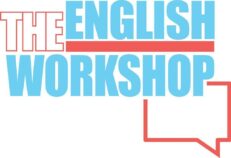Le guide complet ‘Citoyenneté et Monde Virtuel’ pour le Bac d’anglais aide les élèves à maîtriser le vocabulaire numérique, les droits en ligne, et l’impact des réseaux sociaux. Il propose des quiz, des exercices, et des exemples de sujets de dissertation pour préparer efficacement l’examen.

I. Vocabulaire Essentiel pour le Bac
1. Noms Essentiels (Essential Nouns)
| Anglais | Prononciation | Français | Niveau CECRL | Exemple d’utilisation |
|---|---|---|---|---|
| identity | /aɪˈdentəti/ | identité | B1 | My online identity is different from my real-life one |
| privacy | /ˈprɪvəsi/ | vie privée | B1 | We must protect our privacy online |
| account | /əˈkaʊnt/ | compte | A2 | I have several social media accounts |
| profile | /ˈprəʊfaɪl/ | profil | A2 | My Facebook profile needs updating |
| password | /ˈpɑːswɜːd/ | mot de passe | A2 | Change your password regularly |
| network | /ˈnetwɜːk/ | réseau | B1 | Social networks connect people worldwide |
| security | /sɪˈkjʊərəti/ | sécurité | B1 | Online security is crucial nowadays |
| footprint | /ˈfʊtprɪnt/ | empreinte | B2 | Your digital footprint lasts forever |
| data | /ˈdeɪtə/ | données | B1 | Personal data must be protected |
| device | /dɪˈvaɪs/ | appareil | B1 | I access the Internet from multiple devices |
2. Verbes Importants (Important Verbs)
| Anglais | Prononciation | Français | Niveau CECRL | Exemple d’utilisation |
|---|---|---|---|---|
| to share | /tə ʃeə/ | partager | A2 | Think twice before you share personal information |
| to post | /tə pəʊst/ | publier | A2 | She posts photos every day |
| to protect | /tə prəˈtekt/ | protéger | B1 | We need to protect our online identity |
| to connect | /tə kəˈnekt/ | se connecter | A2 | I connect to the Internet daily |
| to browse | /tə braʊz/ | naviguer | B1 | I browse the web carefully |
| to upload | /tu ˈʌpləʊd/ | télécharger | B1 | Don’t upload sensitive documents |
| to download | /tə ˌdaʊnˈləʊd/ | télécharger | A2 | Be careful what you download |
| to create | /tə kriˈeɪt/ | créer | B1 | Create strong passwords |
| to delete | /tə dɪˈliːt/ | supprimer | A2 | Delete suspicious emails |
| to update | /tu ʌpˈdeɪt/ | mettre à jour | B1 | Update your privacy settings regularly |
3. Adjectifs Utiles (Useful Adjectives)
| Anglais | Prononciation | Français | Niveau CECRL | Exemple d’utilisation |
|---|---|---|---|---|
| digital | /ˈdɪdʒɪtəl/ | numérique | B1 | The digital world is evolving |
| online | /ˈɒnlaɪn/ | en ligne | A2 | Be careful with your online behavior |
| private | /ˈpraɪvət/ | privé | A2 | Keep your private information secure |
| public | /ˈpʌblɪk/ | public | A2 | Your public profile can be seen by everyone |
| secure | /sɪˈkjʊə/ | sécurisé | B1 | Use secure websites for shopping |
| virtual | /ˈvɜːtʃuəl/ | virtuel | B1 | We live in a virtual world |
| responsible | /rɪˈspɒnsəbl/ | responsable | B1 | Be responsible on social media |
| connected | /kəˈnektɪd/ | connecté | B1 | We are always connected nowadays |
| vulnerable | /ˈvʌlnərəbl/ | vulnérable | B2 | Young users are often vulnerable online |
| anonymous | /əˈnɒnɪməs/ | anonyme | B2 | Nothing is truly anonymous on the Internet |
4. Expressions Courantes (Common Expressions)
| Anglais | Prononciation | Français | Niveau CECRL | Exemple d’utilisation |
|---|---|---|---|---|
| social network | /ˈsəʊʃəl ˈnetwɜːk/ | réseau social | B1 | Facebook is a popular social network |
| digital footprint | /ˈdɪdʒɪtəl ˈfʊtprɪnt/ | empreinte numérique | B2 | Your digital footprint can affect your future |
| privacy settings | /ˈprɪvəsi ˈsetɪŋz/ | paramètres de confidentialité | B1 | Check your privacy settings regularly |
| cyber security | /ˈsaɪbə sɪˈkjʊərəti/ | cybersécurité | B2 | Cyber security is increasingly important |
| data protection | /ˈdeɪtə prəˈtekʃən/ | protection des données | B2 | Data protection is a major concern |
| online safety | /ˈɒnlaɪn ˈseɪfti/ | sécurité en ligne | B1 | Online safety should be taught at school |
| digital literacy | /ˈdɪdʒɪtəl ˈlɪtərəsi/ | littératie numérique | C1 | Digital literacy is essential today |
| social media platform | /ˈsəʊʃəl ˈmiːdiə ˈplætfɔːm/ | plateforme de médias sociaux | B2 | Instagram is a social media platform |
| digital citizenship | /ˈdɪdʒɪtəl ˈsɪtɪzənʃɪp/ | citoyenneté numérique | B2 | Digital citizenship involves responsibilities |
| online reputation | /ˈɒnlaɪn ˌrepjuˈteɪʃən/ | réputation en ligne | B2 | Protect your online reputation carefully |
B. Expressions Utiles à Mémoriser
🔑 Pour donner son avis :
- « In my opinion… » = À mon avis…
- « I think that… » = Je pense que…
- « From my point of view… » = De mon point de vue…
🔑 Pour structurer ses idées :
- « First of all… » = Tout d’abord…
- « Moreover… » = De plus…
- « Finally… » = Enfin…
🤌Dis adieu à ton anglais de collégien
Tu te sens nul en anglais ? Tu n’es pas seul.
C’est FAUX. Tu n’es pas nul, tu es juste mal armé.
En fait…
Des centaines de personnes ont déjà sauté le pas et ont dit adieu à leur anglais hésitant grâce aux bonnes techniques.
Ces techniques révolutionnaires s’attaquent à la racine du problème.
Elles sont simples, rapides et efficaces.
Le meilleur dans tout ça…
Ces techniques n’ont RIEN à voir avec des cours particuliers, des applications ennuyeuses ou des séjours linguistiques hors de prix.
Imagine-toi parlant anglais couramment, recevant des compliments, te sentant enfin à l’aise.
Ces techniques ont déjà fait leurs preuves.
Des centaines de mes étudiants les ont testées et approuvées.
Découvre EXACTEMENT comment ces techniques fonctionnent.
Attention, cette opportunité ne sera pas disponible éternellement.
II. Comment Construire son Devoir
1. L’Introduction
- Phrase d’accroche :
Nowadays, teenagers spend most of their time online.
(De nos jours, les adolescents passent la plupart de leur temps en ligne.)- Problématique :
How does this constant connection affect their lives?
(Comment cette connexion permanente affecte-t-elle leurs vies ?)2. Le Développement
Premier Paragraphe : La Définition
Formule pour commencer :
First of all, digital identity represents who we are on the Internet.
(Tout d'abord, l'identité numérique représente qui nous sommes sur Internet.)ATTENTION aux faux-amis :
- actually ≠ actuellement
- eventually ≠ éventuellement
- control ≠ contrôler
Deuxième Paragraphe : Les Avantages
Connecteurs utiles :
- On the one hand = D’un côté
- For instance = Par exemple
- Such as = Comme par exemple
Troisième Paragraphe : Les Risques
Formules pour nuancer :
- However = Cependant
- Nevertheless = Néanmoins
- Although = Bien que
III. Exemple de Composition pour le bac
Sujet
« Social media has changed the way teenagers build their identity. Is this evolution positive or negative? » (Les réseaux sociaux ont changé la façon dont les adolescents construisent leur identité. Cette évolution est-elle positive ou négative ?)
Introduction
Nowadays, teenagers spend countless hours on social media platforms such as Instagram, TikTok and Snapchat. While previous generations built their identity through real-life interactions, young people today develop their personality both online and offline. This evolution raises questions about the impact of social media on teenage identity formation.
Paragraphe 1 : Aspects positifs
On the one hand, social media offers teenagers new opportunities for self-expression. Through their profiles, they can share their interests, talents and creativity with a wider audience. For instance, a shy teenager who loves photography can build confidence by sharing their work on Instagram. Moreover, social networks allow young people to connect with others who share similar passions, regardless of geographical barriers. This can be particularly beneficial for teenagers who feel isolated in their local community.
Paragraphe 2 : Risques et difficultés
However, social media can also have negative effects on identity development. The pressure to maintain a perfect online image often leads to anxiety and low self-esteem. Many teenagers feel compelled to edit their photos and present an idealized version of themselves. Furthermore, the constant comparison with others’ carefully curated lives can be harmful. As a result, some young people struggle to develop an authentic sense of self, focusing instead on gaining likes and followers.
Conclusion
While social media provides valuable opportunities for self-expression and connection, it also presents significant challenges for teenage identity formation. The key lies in finding a balance between online and offline life. Education about digital citizenship and responsible social media use is essential to help teenagers navigate this new reality.
Analyse de la Composition
Points Forts
- Structure claire :
- Introduction qui pose le débat
- Paragraphes équilibrés
- Conclusion qui synthétise
- Vocabulaire adapté (niveau B1-B2) :
- self-expression (B2)
- geographical barriers (B2)
- carefully curated (B2)
- authentic sense of self (B2)
- Connecteurs logiques variés :
- Nowadays
- On the one hand
- However
- Furthermore
- As a result
- While
Expressions Clés à Réutiliser
- « This evolution raises questions about… »
- « Through their profiles, they can… »
- « This can be particularly beneficial for… »
- « The pressure to maintain… »
- « The key lies in… »
Grammaire à Noter
- Present Simple pour les faits généraux :
- « teenagers spend… »
- « social media offers… »
- Modal Verbs :
- « can build confidence »
- « can be harmful »
- Pronoms relatifs :
- « who feel isolated »
- « who loves photography »
Conseils pour la Rédaction
- Bien délimiter le temps :
- 5 minutes pour analyser le sujet
- 5 minutes pour le plan
- 30 minutes pour la rédaction
- 5 minutes pour la relecture
- Vérifier :
- L’orthographe
- La ponctuation
- Les accords sujet-verbe
- La cohérence des temps
Quiz : Vocabulaire et Prononciation
1. Que signifie « Digital Citizenship » ?
2. Comment prononce-t-on le mot « Privacy » ?
3. Que signifie « Cyberbullying » ?
4. Comment prononce-t-on « Cybersecurity » ?
5. Que signifie « Digital Footprint » ?
6. Que signifie « Netiquette » ?
7. Comment prononce-t-on « Algorithm » ?
8. Que signifie « Fake News » ?
9. Comment prononce-t-on « Encryption » ?
10. Que signifie « Firewall » ?
11. Que signifie « Two-factor authentication » ?
12. Comment prononce-t-on « Phishing » ?
13. Que signifie « Malware » ?
14. Que signifie « Cloud Storage » ?
15. Comment prononce-t-on « Firewall » ?
16. Que signifie « Identity Theft » ?
17. Que signifie « Username » ?
18. Comment prononce-t-on « User » ?
19. Que signifie « VPN » ?
20. Que signifie « Encryption » ?
